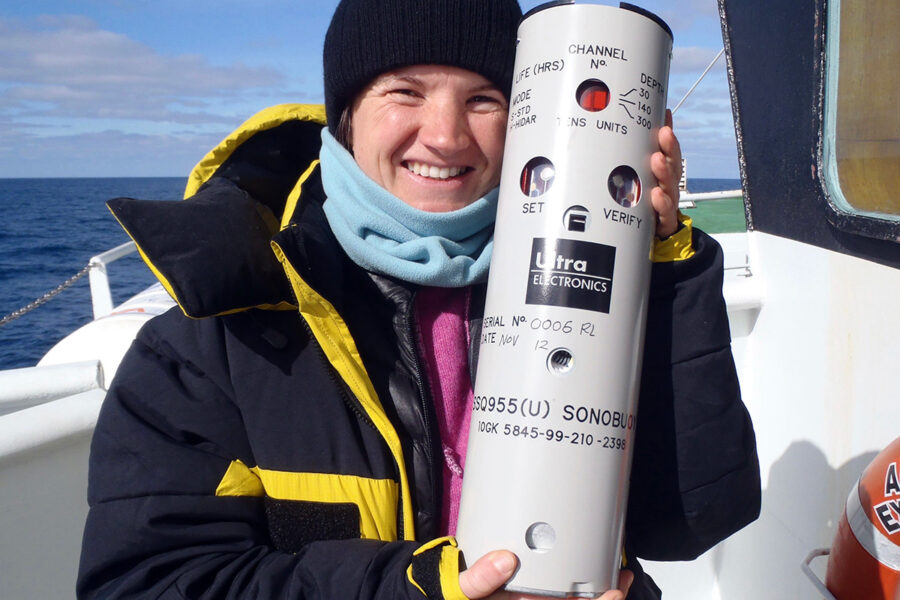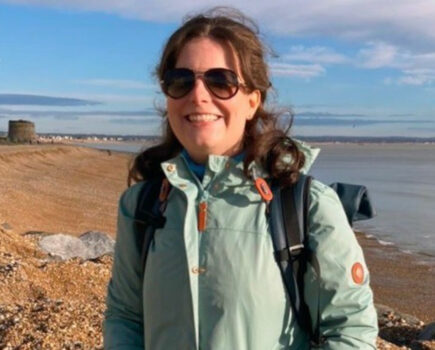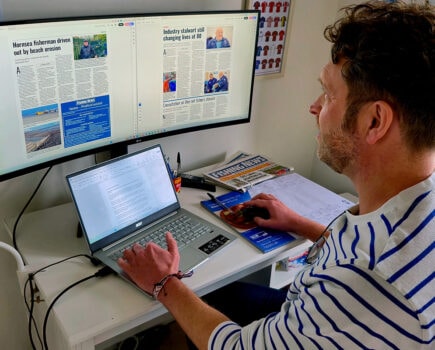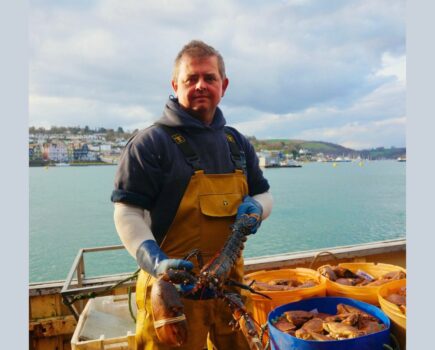“I spend a lot of time at sea. It’s always been the place where I’ve most wanted to be,” marine mammal ecologist Susie Calderan told Fishing News.
“My career has always involved a lot of practical work – looking at simple solutions to what can be perceived as being intractable, complex environmental problems. That’s the area which really interests me – practical solutions and working with people to find them.”
That led to Susie working with creel fishermen on the west coast of Scotland for a collaborative study exploring how use of ‘sinking line’ – negatively buoyant rope that sits very lightly on the seabed – could help to reduce the risk of cetacean entanglement in creel fisheries.
“I think sometimes policy-makers and scientists are a little unsure about how to work with the fishing industry, but creel fishermen are generally brilliant problem-solvers. If you’ve got some kind of issue on your boat, you can’t ask Google – you just have to crack on.
“Fishermen often know their fisheries best – and that’s what I really like about working with fishermen in Scotland, especially the inshore fleet. They’ve thought about these things – they’re on top of it. The sinking line work that we’ve been doing came from a suggestion from inshore creel fishermen.”
Susie can also find herself collecting data at sea on the other side of the world. “I’m a research scientist, and I do quite a lot of work on resolving human industry interactions – things like fisheries bycatch and entanglement, underwater noise, ship strikes – all issues which concern whales. I do a lot of that kind of work, both in a desk- based way where I analyse and process data and write reports – but I’m also out collecting the data as well.
“So as well as working with the creel fishery, I also have a parallel, more conventionally scientific career. My speciality is whale acoustics, listening to the sounds that whales and dolphins make using hydrophones – underwater microphones.
“You can tell quite a lot from those sounds, such as what species are where, and when – which enables you to resolve interactions. For example, if you’re looking at reducing a ship strike risk in a certain place, then you would look at the distribution of whales in that area, and if the ships can be rerouted to reduce that risk.”
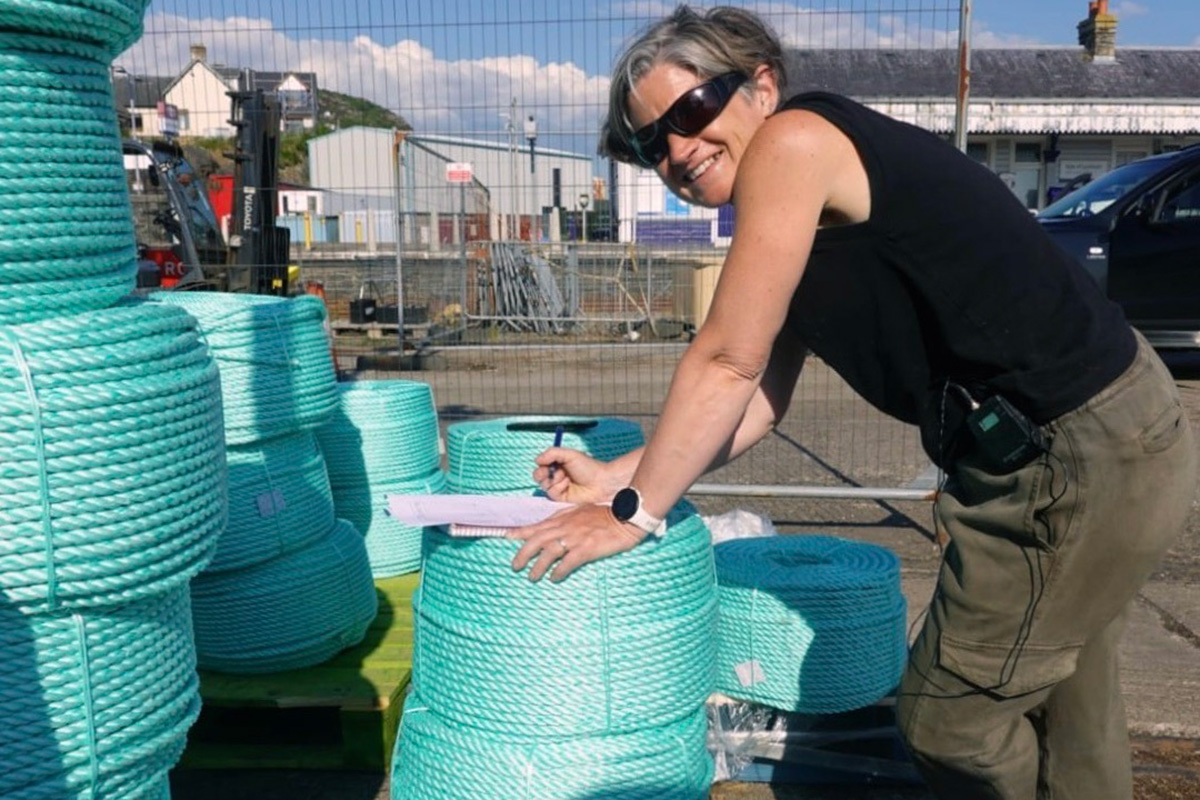
Susie on the quayside in the Kyle of Lochalsh with a new delivery of sinking line, which is being trialled by local creel fishermen. The project has seen Susie develop a good relationship with the fleet. “I think there can be the idea that perhaps fishermen don’t want to talk to researchers. I think they do – they just don’t want researchers to talk at them – which is sometimes what happens.”
For Fort William-based Susie, no two days are the same. “Having quite a mixed career, most days in my life are incredibly varied. If I’m working with fishermen in Scotland, for example, I might be out on a boat for the day. However, I also do a lot of acoustic work in the Antarctic and sub-Antarctic, so I could be on a boat down there. Or I might be at home, swearing at some spreadsheets!”
Good planning is therefore an essential part of Susie’s job. “From week to week, I pretty much know what I’m going to do. If I have a week working with fishermen, then we may have had a delivery of sinking line, and I may need to get that distributed – or maybe we’re putting some sensors on some gear to see how it behaves on the seabed.
“I do try to plan several months ahead, being self-employed – if you aren’t careful, it’s either feast or famine. Sometimes you can control that – but other times you have challenging weeks where everything happens all at once. In theory, you should also get quiet weeks – but that doesn’t seem to happen!”
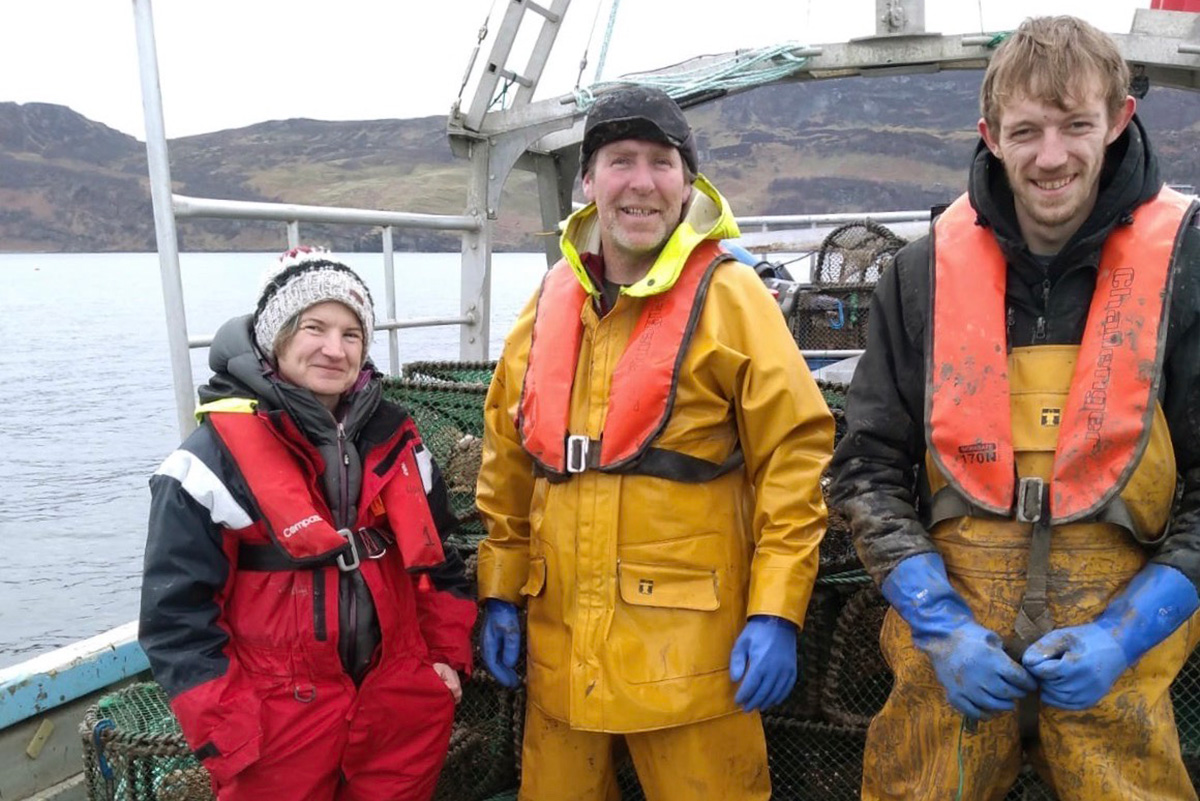
Susie with Bally Philp (centre) onboard his creel vessel Nemesis BRD 115, collecting data on how fleets of creels are behaving on the seabed. “We’ve got these tiny little sensors that we can put on creels and rope which record the depth and movement. That’s been really useful for seeing the height of loops of rope, or how much the creels move around on the seabed.”
The planning can extend to arranging the logistics of a project. “If you’re working for a government organisation, all the surveys and timescales are planned, and the transport is arranged for you. However, we also work on our own projects where it’s variable who you’re working with. You have to build your own project, put it all together and make all your own contacts.”
Online working is also an important part of Susie’s job. “The world has changed hugely, and I can now do a vast number of meetings online – and that does enable me to live wherever I want. Those meetings are great – you can have three meetings in a day, and not leave your desk.
“It is really nice meeting people in person, and I do enjoy that – there’s no substitute for that – but all that travelling is not good for a person, and it’s not good for the environment.”
Whether she’s writing reports, researching, processing data and liaising with the local creel fleet, or listening to and tracking whales and dolphins on the other side of the world, Susie’s focus is on finding answers and solving issues.
“What I really like about my job is all the things we don’t know yet. When people ask: ‘Why does this happen?’, it’s never disappointing for me to reply: ‘Well, actually – we don’t know.’
“It’s just another thing that needs to be found out – and that’s what I enjoy about my work.
“There’s always a new problem to solve, and I really enjoy that.”
This story was taken from the latest issue of Fishing News. For more up-to-date and in-depth reports on the UK and Irish commercial fishing sector, subscribe to Fishing News here or buy the latest single issue for just £3.50 here.
Sign up to Fishing News’ FREE e-newsletter here.

